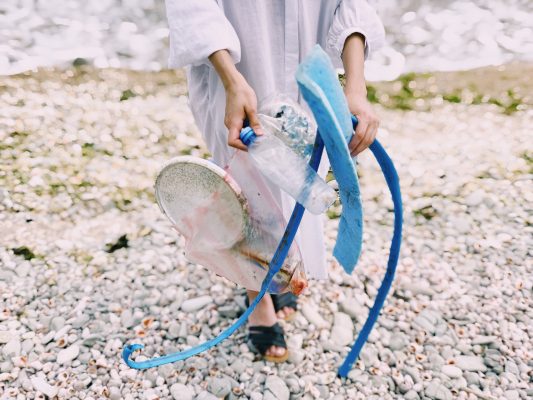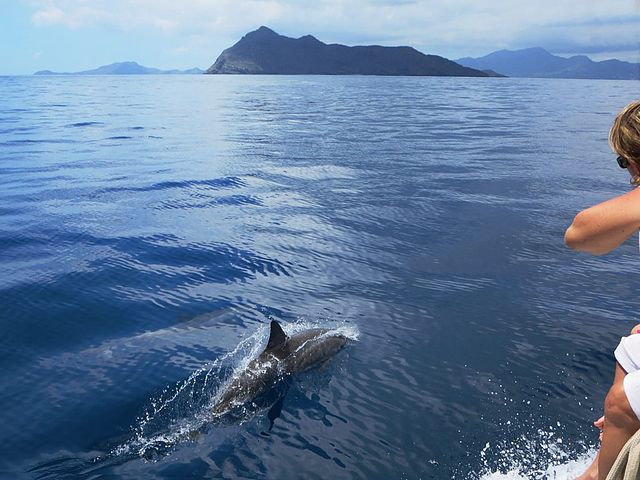Marine Conservation Society is looking for volunteers to take part in the 25th Great British Beach Clean Up
The MCS is looking for volunteers to take part in the Great British Beach Clean Up which takes place around the UK 14 - 17 September. Find out how you can get involved
UK’s charity Marine Conservation Society (MCS), is looking for thousands of volunteers to clean up the nation’s beaches as part of its 25th anniversary Great British Beach Clean event, which takes place 14 – 17 September.
Beach cleans take place all over the UK and the event incorporates the Great Channel Islands Beach Clean and the Great Northern Irish Beach clean.
Now in its 25th year, the Great British Beach Clean has had a pivotal role in changing policy and behaviours over the last quarter of a century. When picking up litter, volunteers are asked to record the litter they find, so the MCS has a list of the rubbish found.
The 5p carrier bag charge, a ban on microbeads in wash-off products, consultations on a plastic tax and deposit return schemes, reduction in the use of plastic straws and the banning of lantern and balloon releases – all have come about following compelling evidence gathered over decades of MCS beach cleans.
In 2017 the yearly event saw almost 7,000 volunteer beach cleaners pick up record amounts of litter from 339 UK beaches – a shocking 718 bits of rubbish from every 100 metres cleaned. That was a 10% rise in the amount of beach litter picked up during the 2016 event.
Beach litter has incrementally and steadily risen over the 24 years since MCS began recording it. However, there was some good news last year as the number of single-use plastic bags found on UK beaches almost halved between 2015 and 2016. MCS says this was almost certainly due to the 5p charge at the checkout and shows the impact that behaviour change can have on beach litter.
In 2017 ‘on the go’ items, which include cardboard cups, plastic cutlery, foil wrappers, straws, sandwich packets, lolly sticks, plastic bottles, drinks cans, glass bottles, plastic cups, lids and stirrers made up 20% of all litter found on the UK’s beaches and 63% of all litter comes from the public. The MCS says that this amount of litter “suggests we’re treating the outdoors as a big dustbin, happy to dump at will rather than keep hold of our litter until we find a bin.”
“Taking part in the Great British Beach Clean really can make a difference. In previous years when we’ve highlighted increases in dog poo bags and sewage related debris found on beaches, we’ve seen drops in numbers subsequently. Due to the massive increase in wet wipes we found between 2013 and 2015 we were able to launch our ‘Wet Wipes Turn Nasty’ campaign which has resulted in improvements in labelling, removal of plastic from ‘flushable’ wet wipes in retailers’ own brands, and shown retailers the need for their flushable wipes to pass water industry standards.” says Lizzie Prior, MCS Beach and River Clean Project Officer.
“Beach litter is a serious environmental problem,” says Lizzie Prior. “But the solution is in our hands. We want the 25th Great British Beach Clean weekend to be the biggest ever. The BBC’s Blue Planet II has given the UK public a real understanding of the pollution crisis facing our oceans and people really want to make a difference. The more volunteers we have, the better it’ll be for our seas.”
Continues below…
Premier Marinas install two Seabins in Port Solent marina
Environmental consultancy Helistrat has installed two Seabins at Premier Marinas' Port Solent marina. The Seabins aim to tackle marine plastic…
Eco-artist Jason deCaires Taylor creates the Coralarium, the first coral regeneration art installation in the Maldives
The Coralarium is a semi-submerged installation that acts both as a work of art and as a sheltered space to…
Eco-friendly sailing: enjoy your favourite sport and respect nature
As sailors and boaters, we have a responsibility to treat the environment with respect. Following these guidelines is good environmental…
For the second year running, the Great British Beach Clean in England is being sponsored by Waitrose who are supporting MCS’ year round beach and river clean programme.
Tor Harris, Head of Responsible Sourcing and Sustainability at Waitrose, said: “Our coast is important to all of us so the Great British Beach Clean is a key opportunity to reduce pollution, especially from plastics. We’re really happy to support such a fantastic event and this builds on our environmental commitment to ensure that all our packaging is widely recyclable, reusable or home compostable by 2025. We’d love for our customers and Partners (employees) to sign up and organise local beach cleans to improve them for wildlife and all of us.”
Those interested in volunteering can sign up to clean a beach near them here or call 01989 566017. Members of the public can also organise a beach clean up if the beach near where they live doesn’t have one already.
Cleaning and surveying a beach takes a couple of hours at most and each beach has a coordinator, who explains how to fill in a simple data form.












